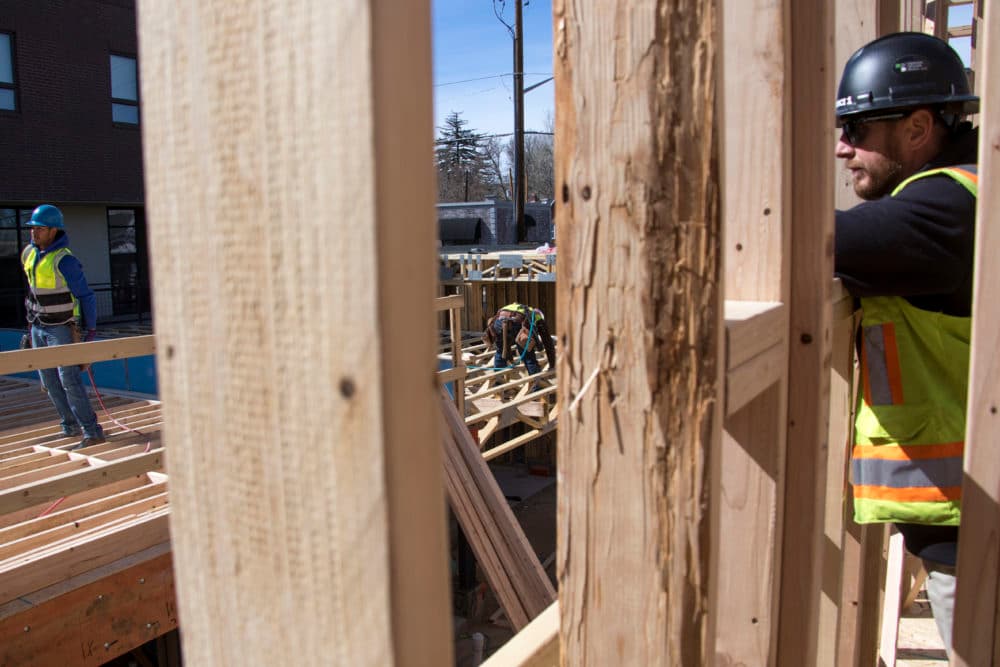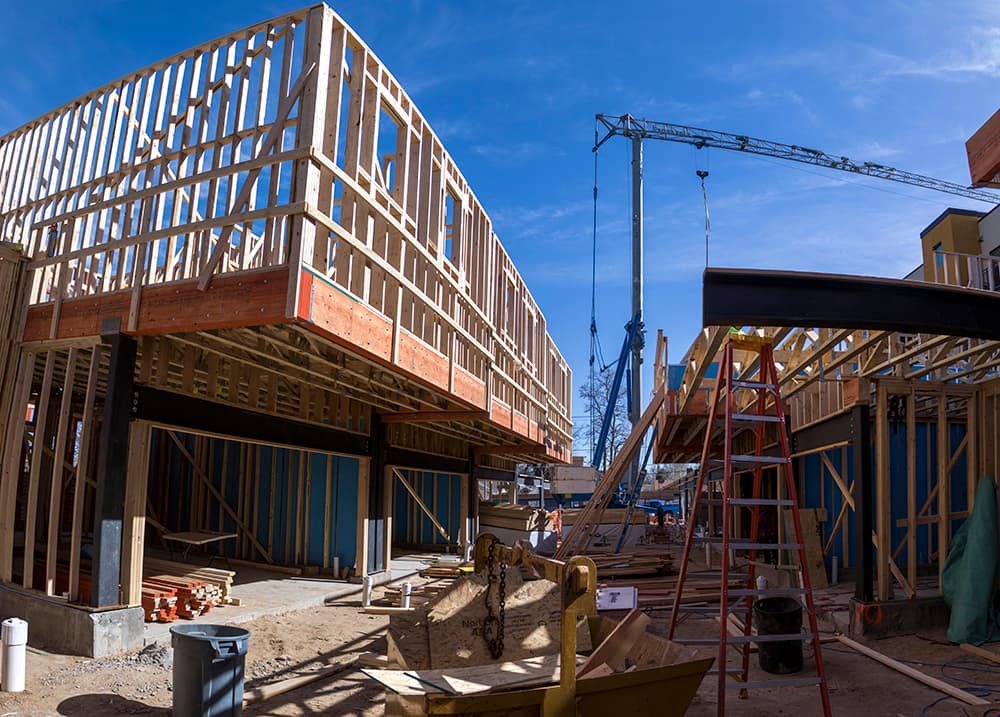It's called a puzzle lift. As you swipe your key fob, a hidden system begins to rumble beneath your apartment and a mass of parked vehicles writhes to make way for your car which, within a few minutes, rises into view.
This could be the future Denver's parking: smart systems that maximize square (cubic?) footage and allow for a little more density without the need for a full-on garage. Cities like New York and San Fransisco have already embraced the future, and now Denver's developers are gearing up to join them.
On a construction site off 38th Avenue in West Highland, builder Jeff Ayres stands amid the bones of a townhome project as it's being framed. He points to the garage, which is twice as tall as it should be. The height, he explains, is to make room for an automated lift.
This is one of three projects he's working on that are planning for some kind of robotic parking mechanism. The other two -- one on Tennyson and another on Santa Fe -- are looking into the smarter puzzle systems.
"Most people probably want a parking spot," Ayres speculates.

While Denverites do have a propensity to drive, developers say their motivation to try novel approaches has more to do with their bottom line.
Leonard Taub, who's building the townhomes on 38th and looking into a puzzle system for his multi-use building on Santa Fe, has a background in the automated parking industry in New York and New Jersey. Back east, he said, this kind of thing is motivated by a pure lack of space.
That's not the case in Denver.
Developers here have to contend with mandated minimum parking that's laid out by the city's zoning code. Depending on where you're building, you may be required to include between 1.25 and .75 parking spaces per residential unit. When it comes to balancing the books on a new project, making spaces can be a challenge.
"A lot of projects in Denver do not work because it's too expensive to dig that hole," Taub said, referring to the below-grade parking garage that he's happy to avoid in his blueprints. That kind of thing might work in Cherry Creek, where properties already come with an elevated price tag, but not so much in north Denver.

The two-car lifts he's making room for on 38th Avenue are optional, but he's leaning on the dense puzzle system to make his Santa Fe project viable. Taub says he's looking into squeezing in as many as 55 spots.
"Every project lives and dies by the parking requirement," said developer Dylan Lucas, who's building a multi-use project on Tennyson. "The things I've looked at and passed on were because we couldn't make the parking work."
And beyond making code, Lucas is especially interested in freeing up extra square footage for commercial spaces with "curb appeal" along Tennyson's main-street stretch.
"I did not want my ground floor to be 70 percent parking spaces," he said. "That's the prime real estate."
At the moment, there are few if any automated systems in Denver. When Lucas met with the city to pitch the puzzle system, he said officials had looked at a few plans but had yet to see any used.
But interest is growing.
"Within the past year there's been a lot of interest coming from Denver," said Ray Kahue, spokesperson for CityLift Parking, which makes a version of the puzzle lift system. CityLift just installed a system in Wisconsin, and Kahue says it's part of a trend of new demand in the center of the country.
Lucas says he could see this kind of thing becoming more common in Denver, though he thinks an era of self-driving cars might outmode parking requirements altogether.
For now, though, he's happy to be a part of the first wave of builders embracing a new way of doing things.
"Somebody has to take that first leap," he said.












